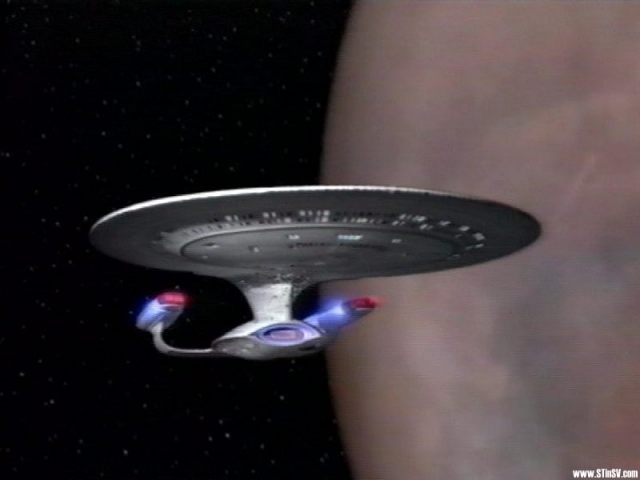|  |
|  |
Given the number of novels that are out there which are set in the Star Trek universe (in any of its incarnations), it is perhaps inevitable that they will run the gamut of quality, from abysmal to wonderful. For examples of the latter, one should investigate the works of John M. Ford, among others. And, for a perfect example of the former level of quality, one need only pick up Gulliver's Fugitives.
In Gulliver's Fugitives, the Enterprise comes across a planet populated by colonists from Earth. The government has outlawed imagination (huh?) and works of fiction (for no readily apparent reason, by the way), and enforces this ban through the use of omnipresent mind-reading devices. A small band of people have fled this culture, and are attempting to keep the old myths and legends alive. An entirely superfluous sub-plot has a group of "Otherworlders" apparently attempting to contact Counselor Troi.
I won't go into the plot in any further detail - suffice it to say it's as bad as it sounds. The culture on the planet ("Rampart" by name) reads like a particularly clumsy blend of 1984 and Farenheit 451. For example, the police officers on Rampart (the actual name for the police force is "Cephalic Security") carry little devices for burning books - I kid you not. Almost as annoying as the "derivative-ness" of the setting are the breaks in continuity. For example - the planet is inside a nebula, and much is made of how this will prevent the Enterprise communicating with Starfleet. Later on, the ship does send messages to Starfleet from inside the nebula. Similarly, although imagination is outlawed, and, indeed, unknown, the government of Rampart still "edits" broadcasts for propaganda reasons. Looks like somebody has some imagination... Anyway, this book's faults are so immense as to preclude practically any entertainment value.
There is a lot room in the Star Trek genre, and some of it, of necessity, will be taken up with works that are simply not up to par. However, I do hope that when Keith Sharee next attempts a Star Trek novel, he is more successful than he was with Gulliver's Fugitives.
Reviewed by Patrick Conway on February 14, 1997. Posted in rec.arts.books.reviews on February 16, 1997. Photograph from Star Trek in Sound and Vision.